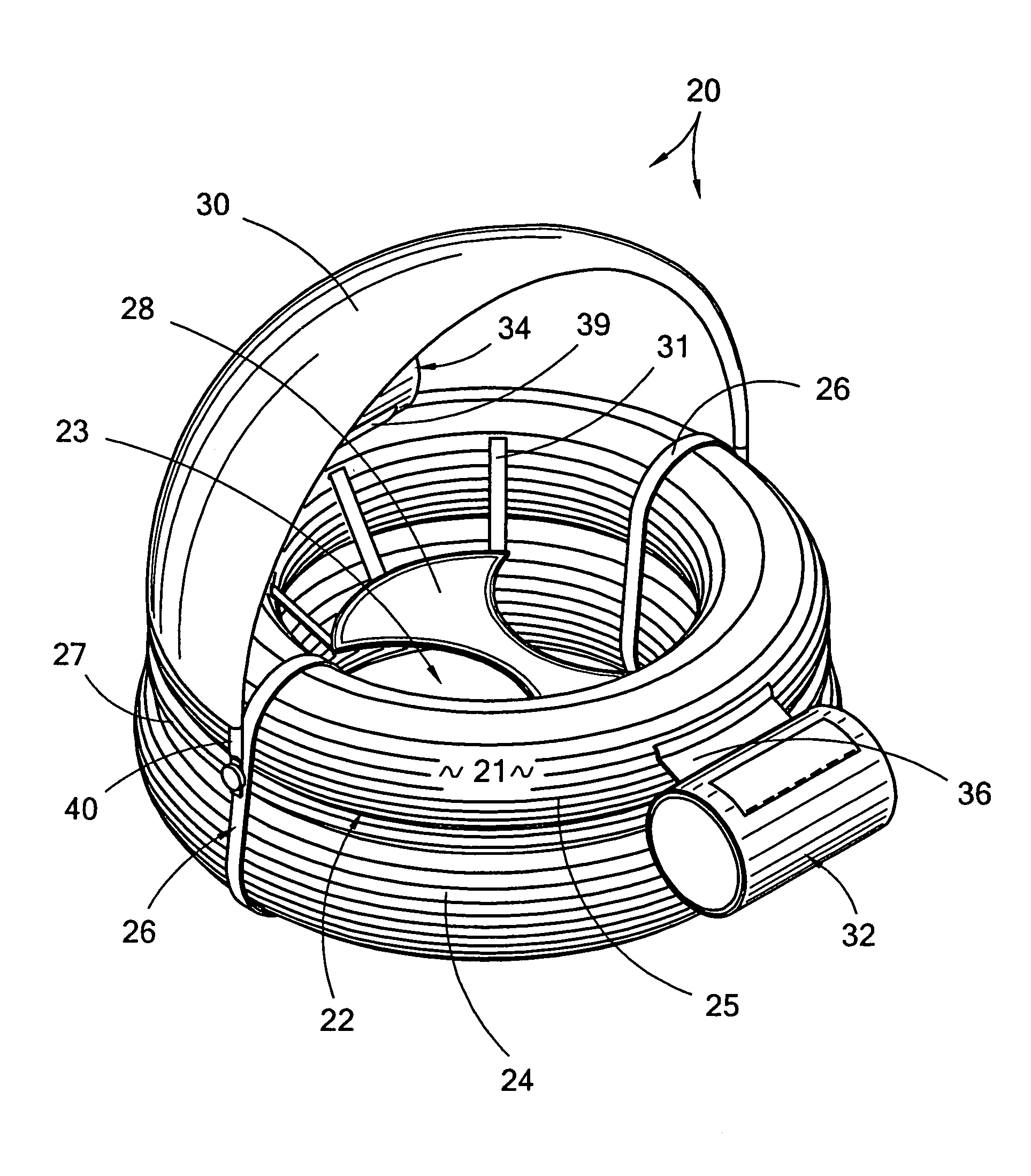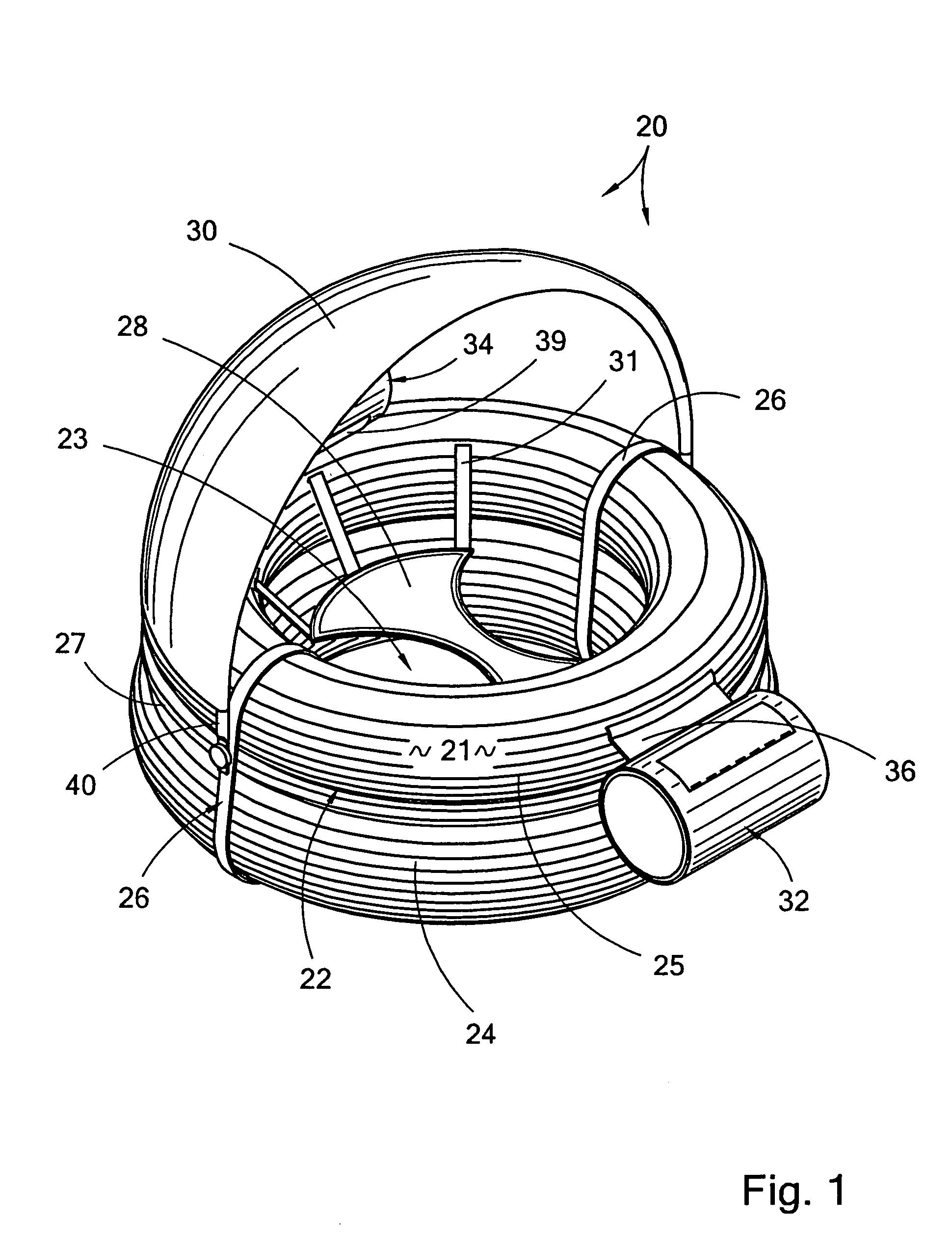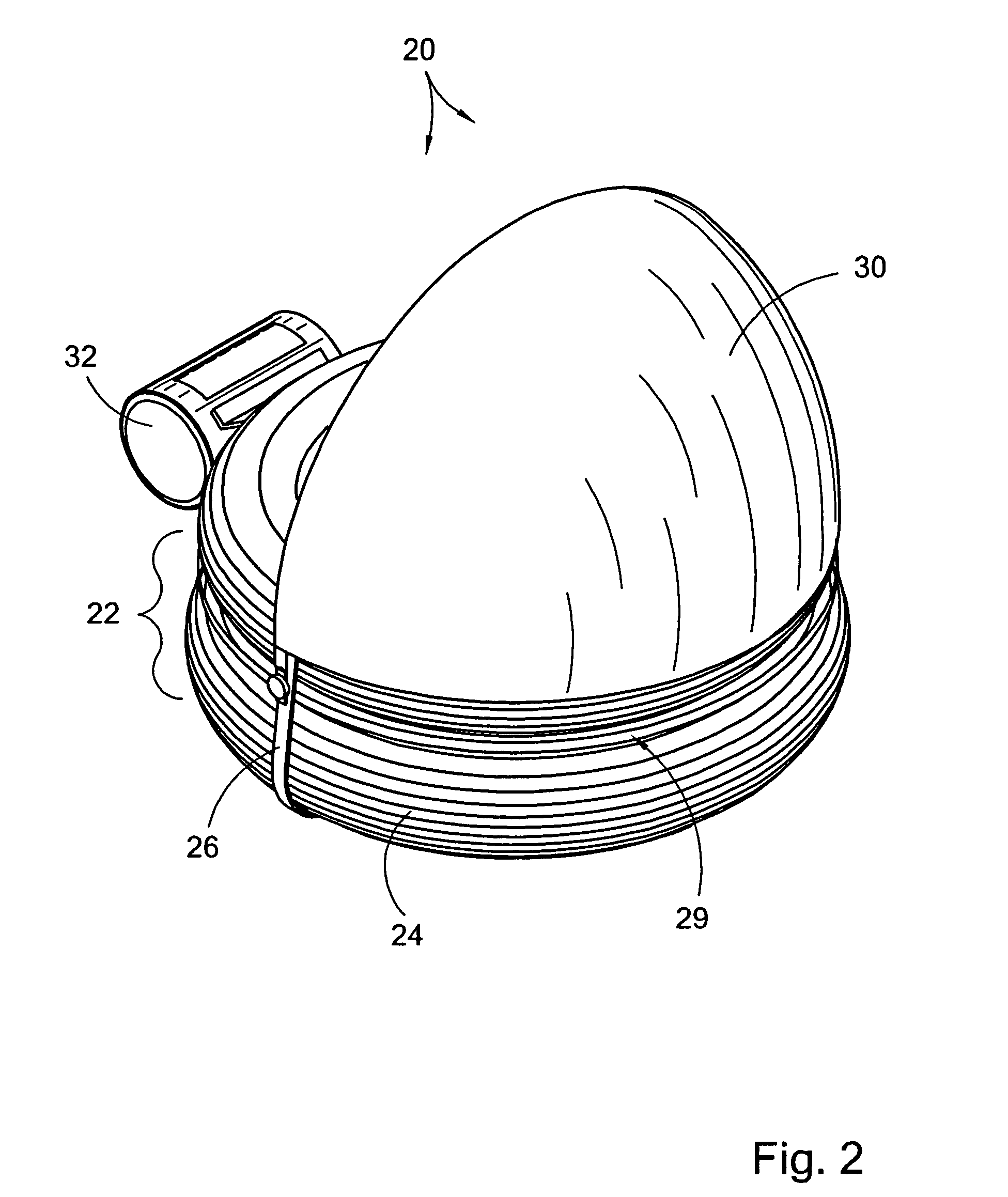Floating sportsman's blind
a technology for sportsmen and blind people, applied in the field of floating support, can solve the problems of limiting upper body movement, affecting casting or proper shooting, and affecting the height of the inner tube float,
- Summary
- Abstract
- Description
- Claims
- Application Information
AI Technical Summary
Benefits of technology
Problems solved by technology
Method used
Image
Examples
Embodiment Construction
[0056]With initial reference directed initially to FIGS. 1-3 of the appended drawings, my floating blind has been generally designated by the reference numeral 20. The lower, circular or toroidal base 22 of the float 20 preferably comprises a lower inner tube 24 and an upper inner tube 25 that are covered by suitable fabric and maintained in stacked, coaxial relation. The open and circular center of the aligned tubes and the float, generally designated by the reference numeral 23, is occupied by the user sitting on the seat 28 described below.
[0057]In the best mode the float has a base 22 formed from a pair of stacked inner tubes 24, 25 for flotation. Although automotive inner tubes are preferred in the best mode, a variety of other inflatable floats such as air bladders may be used. As used herein, the term “inner tube” shall refer to toroidal automotive inner tubes such as those illustrated, and to inflatable air bladders. The preferred inner tubes are vertically stacked, and arra...
PUM
 Login to View More
Login to View More Abstract
Description
Claims
Application Information
 Login to View More
Login to View More - R&D
- Intellectual Property
- Life Sciences
- Materials
- Tech Scout
- Unparalleled Data Quality
- Higher Quality Content
- 60% Fewer Hallucinations
Browse by: Latest US Patents, China's latest patents, Technical Efficacy Thesaurus, Application Domain, Technology Topic, Popular Technical Reports.
© 2025 PatSnap. All rights reserved.Legal|Privacy policy|Modern Slavery Act Transparency Statement|Sitemap|About US| Contact US: help@patsnap.com



